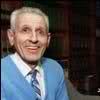- Welcome to Cook'd and Bomb'd.
-
 Israel-Gaza Conflict III -...
by McFlymo
Israel-Gaza Conflict III -...
by McFlymo
[Today at 01:24:42 AM] -
 Jimmy Carr's new Netflix special....
by Sonny_Jim
Jimmy Carr's new Netflix special....
by Sonny_Jim
[Today at 01:22:35 AM] -
 Fucking motorbike
by Blumf
Fucking motorbike
by Blumf
[Today at 01:19:59 AM] -
 Star Trek: Deep Space Nine...
by Blumf
Star Trek: Deep Space Nine...
by Blumf
[Today at 01:08:30 AM] -
 Naked Gun reboot - Looks like...
by Sonny_Jim
Naked Gun reboot - Looks like...
by Sonny_Jim
[Today at 01:00:05 AM] -
 please kiss orangutan
by Underturd
please kiss orangutan
by Underturd
[Today at 12:55:00 AM] -
 Trans Mania: Graham Linehan...
by Sonny_Jim
Trans Mania: Graham Linehan...
by Sonny_Jim
[Today at 12:54:52 AM] -
 Black Jeans?
by Underturd
Black Jeans?
by Underturd
[Today at 12:53:36 AM] -
 Threelon Musk: pl3ase lik3...
by McFlymo
Threelon Musk: pl3ase lik3...
by McFlymo
[Today at 12:47:59 AM] -
 Gold orders Bottom Exposed...
by Toki
Gold orders Bottom Exposed...
by Toki
[Today at 12:46:18 AM]
Members
 Total Members: 17,819
Total Members: 17,819 Latest: Jeth
Latest: Jeth
Stats
 Total Posts: 5,577,446
Total Posts: 5,577,446 Total Topics: 106,658
Total Topics: 106,658 Online Today: 687
Online Today: 687 Online Ever: 3,311
Online Ever: 3,311- (July 08, 2021, 03:14:41 AM)
Users Online
 Users: 39
Users: 39 Guests: 607
Guests: 607 Total: 646
Total: 646 JimminyJillikers
JimminyJillikers Juan K Perros
Juan K Perros pancreas
pancreas Lordofthefiles
Lordofthefiles Jimmy the Harp
Jimmy the Harp Deliciousbass
Deliciousbass Poobum
Poobum Tiggles
Tiggles klaatu!
klaatu! matjam13
matjam13 Cold Meat Platter
Cold Meat Platter machotrouts
machotrouts DigForVictory
DigForVictory Sonny_Jim
Sonny_Jim Zetetic
Zetetic kngen
kngen Chairman Yang
Chairman Yang non capisco
non capisco Peter St. John
Peter St. John fucking ponderous
fucking ponderous Black Ship
Black Ship Blumf
Blumf DelurkedToHelp
DelurkedToHelp Steven88
Steven88 Mobius
Mobius C_Larence
C_Larence DocDaneeka
DocDaneeka This isnt witty sorry
This isnt witty sorry Poirots BigGarlickyCorpse
Poirots BigGarlickyCorpse Egyptian Feast
Egyptian FeastDaniel Defoe's Journal of the Plague Year
Started by Smeraldina Rima, April 28, 2020, 01:30:06 PM
Previous topic - Next topic
User actions

